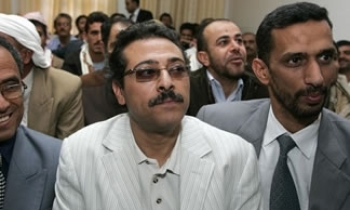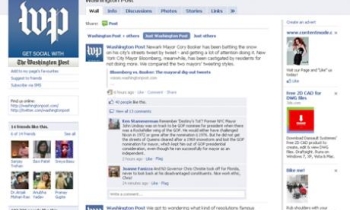Unionized Wall Street Journal reporters didn’t show up for work Thursday morning to protest Rupert Murdoch’s bid for the Journal’s parent company, as well as Dow Jones & Co.’s proposals for a new labour contract.
The half-day walkout, which lasted until 2 p.m. ET, had very high participation by members of the Independent Association of Publishers’ Employees, which represents all Journal reporters around the country, according to E.S. Browning, a stock market reporter who heads the union’s bargaining committee.
Union president Steve Yount said the employees were concerned both about the pending $5 billion (U.S.) offer from Murdoch’s media conglomerate News Corp. as well as the latest contract proposals from Dow Jones, which include higher health care premiums.
The union and a former board member at Dow Jones say the Journal’s independence and quality would suffer under Murdoch’s ownership, something Murdoch denies. Murdoch has said he plans to invest in the paper’s online operations, Washington coverage and expand overseas. He also hopes to tap Dow Jones resources to launch a Fox-branded business news cable channel later this year.
Despite the Journal’s longstanding prestige and clout in the business world, Dow Jones remains a relatively small company in the media landscape, while News Corp.’s operations span the globe, with newspapers in England, Australia and the New York Post as well as the Fox network, Fox News Channel and the Twentieth Century Fox movie and TV studio and MySpace.
Dow Jones has also lagged behind Bloomberg LP and Reuters Group PLC in the business of providing real-time financial news. To make matters worse, Reuters recently agreed to be acquired by Thomson Corp., a major provider of electronic information services to legal and financial professionals, creating an even larger rival.
The union has worked without a contract since late March, around the time when Murdoch first approached Dow Jones. Murdoch’s interest first became public in early May, and the company’s controlling shareholders, the Bancroft family, initially rejected his overture.
They have since softened their opposition to Murdoch’s offer, which many on Wall Street believe is too high to be matched by other bidders. Murdoch’s price of $60 per share represents a staggering premium of about 65 per cent above the mid-$30s level Dow Jones shares were trading at prior to his offer becoming public.
“This is about preserving the quality and integrity of The Wall Street Journal,” Yount said. “We’re talking about … preserving what is special about Dow Jones, and that does not include an unnecessary sale to News Corp.”
The union represents all U.S.-based reporters at the paper but not columnists, overseas employees or managers.
A Dow Jones spokesperson declined to comment on the walkout but said the action wouldn’t interrupt publication of the paper. A News Corp. spokesperson declined to comment.
Dow Jones and News Corp. have reached an agreement in principle over the Bancrofts’ main concern – that measures be put in place to protect the editorial independence of the Journal – but some details have yet to be worked out.
The Bancrofts can still reject a deal. The family owns 25 per cent of the company but controls 64 per cent of the shareholder vote through a special class of supervoting shares, similar to control arrangements that exist at The New York Times Co., The Washington Post Co. and McClatchy Co., the third-largest U.S. newspaper publisher by circulation.
The details of the editorial safeguard proposal have not been made public, but a person familiar with the matter said Thursday that the plan called for creating a five-person committee that would have to approve the hiring and firing of top Journal editors.
The members of the committee would be chosen mutually by Dow Jones and News Corp. The committee would then name replacement members when needed, according to this person, who requested anonymity because the negotiations are still private and not yet complete.
Speaking in an interview with Time magazine that was published online Thursday, Murdoch acknowledged troubling trends in the newspaper business, where print advertising has declined as more people get news from the Internet. He pondered what the future might hold for The Wall Street Journal:
“What if, at the Journal, we spent $100 million a year hiring all the best business journalists in the world? Say 200 of them. And spent some money on establishing the brand but went global … And then you make it free, online only. …
“How long would it take for the advertising to come? It would be successful, it would work and you’d make … a little bit of money,” Murdoch said. “Then again, the Journal and the Times make very little money now.”









